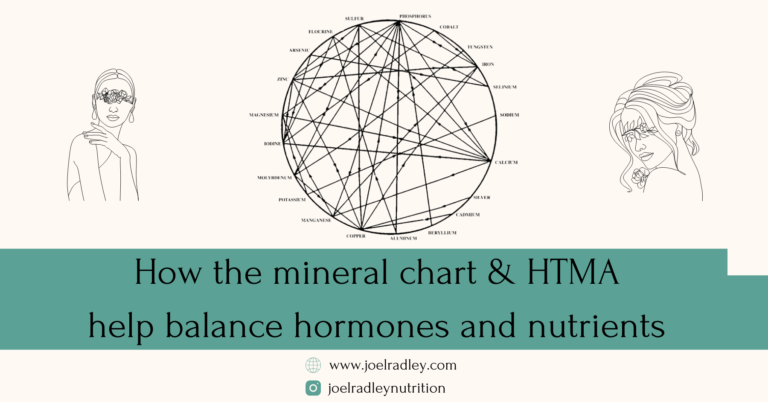Table of Contents
Table of Contents
In this article let’s discuss vitamin A in pregnancy. I get asked the big question by my clients who are either in their first trimester or are attempting to conceive. The big question is if it is really toxic and should be avoided by pregnant women at all costs? Lets cover its benefits for fetal development, toxicity, ideal daily intakes to avoid deficiency, excessive intakes and the crucial differences between synthetic vitamin A and wholefood natural form and how to balance nutrients involved in vitamin A synthesis.
What are the benefits of taking vitamin A during pregnancy?
What is interesting with the vitamin a in pregnancy toxicity issue is that there are many essential benefits are offered to you the mother and your baby with vitamin A in pregnancy, such as:
- it develops the baby’s eyes
- bones
- skin
- it supports immunity which is vital as the body’s immunity is lower when pregnant as your more vulnerable
- birth defects such as spina bifida can be avoided with good amounts of vitamin A
- reduction of premature birth or lowered birth rate.
The mainstream medical view on Vitamin A & pregnancy?
The conservative mainstream view is that Vitamin A also known as retinol, can be toxic in high dose intake for pregnant women whether food or via supplements. Hint – remember retinol is the chemical form of vitamin A, a derivative of vitamin A, some are whole-food form others are synthetically derived. Therefore vitamin A in pregnant women should be avoided. It can affect all parts of the body, the fetus, unborn baby or developing baby in pregnant women, severe toxicity can even lead to blindness and can be life threatening. This is absolutely true with high dose supplementation. A few fatalities in children have also been reported. Yet for the majority this toxicity leads to a spontaneous recovery after stopping the supplementation. If that’s not toxicity I don’t know what it is. But what is the toxicity dosage?
How much vitamin A is too much for pregnant women?
The National Institutes of Health, claims that pregnant women should not exceed 10,000 IU (international units) of vitamin A per day. This is due to there has been a correlation between very high doses and birth defects like spina bifida and to the brain1.
Are there any risks associated with consuming too much vitamin A during pregnancy?
Apart from the aforementioned toxicity hazards such as birth defects and possible fatalities. Generally too much vitamin A can leave you with dizziness, headaches and nausea. Also as vitamin A is stored in the liver, excessive high doses and its accumulation can lead to hypertrophy, fibrosis, excess collagen production & liver injury (2).
You will see in such articles that as vitamin A is found in liver products, fish and dairy, you must monitor your intake, but little light is shone on the effects of vitamin a supplementation, and more importantly synthetic vitamin A supplementation that is found in almost all multivitamins or vitamin A (retinol) supplements in your local health food shop.
To ensure a healthy pregnancy, it’s important to maintain a well-balanced diet that provides all the necessary vitamins and minerals in safe amounts. If you’re unsure about your nutritional needs during pregnancy, consider working with a registered dietitian or health coach who can provide personalized guidance and support.
What are the recommended daily intakes?
According to Harvard RDA & UL are as follows:
RDA (recommended daily intake) : The Recommended Dietary Allowance for adults 19 years and older is 900 mcg RAE for men (equivalent to 3,000 IU) and 700 mcg RAE for women (equivalent to 2,333 IU).
UL: The Tolerable Upper Intake Level is the maximum daily intake unlikely to cause harmful effects on health. The UL for vitamin A from retinol is 3,000 micrograms of preformed vitamin A (3).
How to Balance Vitamin A?
When we use a vitamin D molecule in the body, a vitamin A molecule is also used. These two nutrients must be considered in unison not exactly the same levels but they work together. In nature, vitamin A is found with Vitamin D and other nutrients and minerals. Therefore we truly need good levels of vitamin D via whole-foods and sun. Rather nowhere in nature will you find a food which is just vitamin A. Using wholefoods should not be a problem unless above you eat copious amounts of seal liver and avoid the sun. The take-away is get your sun when you can and possibly use wholefood supplements if supplements are required (4).
Many supplement with vitamin D but too much will deplete vitamin A. Conversely, both A & D require good levels of vitamin k2. It is interesting to note to the naysayers who say that chicken liver contains an ideal ratio and source of A, D and K2. Wow nature is brilliant is it not?
Iron is required for the intestinal conversion of preformed vitamin compounds known as carotenoids to the formed vitamin A known as retinol. Then zinc is needed to convert the subsequent retinal to retinol. Zinc is also needed for retinol binding protein secretion to be synthesis, to mobilize liver stores of vitamin A and transport it to circulation. It is known that more iron is needed in pregnancy and zinc to aid growth, development and immunity, However be careful not all pregnant women require more iron therefore testing serum ferritin at the onset of pregnancy is key to determine if more iron rich wholefoods (5), (6).
Conversely, Vitamin A deficiency may impair mobilization of body stores of iron; improving hemoglobin concentration which is important as some pregnant women are at risk of anemia. Please note that as blood levels of retinol-binding protein alter with pregnancy, therefore the serum retinol test yields imprecise. (Gluckman, Peter, Mark Hanson, Chong Yap Seng, and Anne Bardsley. Nutrition and Lifestyle for Pregnancy and Breastfeeding. Oxford: Oxford UP, 2015.). Be aware that routine iron supplementation is not advisable during pregnancy, since an increased iron intake in women with an already adequate iron status may have adverse effects. Assessment of serum ferritin at the onset of pregnancy will help determine whether more iron or iron-rich foods is indicated.
As mentioned during pregnancy, 3000 μg RAE (10,000 IU) per day from all sources is within the safe upper limit however it may be the case that through solely wholefoods even more up to 20,000 IU during pregnancy can be beneficial from whole food sources such as cod liver oil, 2,000IU of vitamin D via butter, eggs, & oily fish (or if you can get more sun exposure) as well as vitamin K2 from animal fats, fermented foods, aged cheese.
The differences between wholefood vitamin A and synthetic vitamin A?
Synthetic vitamins are made from chemicals to mimic your body’s natural way of absorption, they are sometimes known as analogues. They can cause serious health conditions that are difficult for the body to absorb, in fact most are excreted via urine, but some are not which causes more problems such as synthetic vitamin A.
Wholefood vitamins are from a food source as nature intended by eating wholefoods or through fruits, vegetables or animals foods that concentrate the natural vitamins ina. form your body can absorb.
They are bioavailable and your body recognises them.
Unfortunately for those who have based their belief upon studies on vitamin A and pregnancy, the vast majority have been based on synthetic vitamin A. Whilst there are different forms, its generally retinyl palmitate or retinyl acetate. These tend to be made from combining fish or palm oil with beta-ionone. unsustainable palm oil is is causing deforestation and endangering orangutans. Beta-ionone is made using a dubious process of citrus, acetone, and calcium oxide. What’s more is beta-carotenes are non animal sourced, precursors to vitamin A (before conversions) have a variable conversion rate which some would say is not enough to meet the true human demands of vitamin A. This may make you beg the question why not just eat fish? Ass animal foods have been largely vilified you are likely to find vitamin A Palmitate as your go to synthetic source. However, the process is a cause for concern:
“The vitamin A palmitate is synthesized through a chemical enzyme technology, and the method mainly comprises the following steps: 1, hydrolyzing vitamin A acetate by using an alkali solution with an organic solvent as a cosolvent to generate vitamin A alcohol; and 2, extracting the vitamin A alcohol by using an organic solvent, washing the obtained extract liquid with water to remove the cosolvent reacting with palmitic acid, and reacting the vitamin A alcohol with the palmitic acid in a non-aqueous system under the catalysis of immobilized lipase to generate the vitamin A palmitate” (7).
In terms of supplements you would be better off with cod liver oil, ox liver capsules or possibly a combination with a fruit/vegetable sourced organic beta carotene supplement if your conversion is good.
The victims of these misunderstandings?
The real victim of this misunderstanding is the pregnant women. Traditional books on pregnant women recommend generous amounts of vitamin A rich foods. Dr Price witnessed pregnant women eating sacred foods like fish eggs and cod liver oil. With this being said this is not medical advice and simply educational. Naturally pregnancy is serious and not the time for extreme experimentation, but some cod liver oil, a reasonable amount of liver, or other sacred foods is a part of a general healthy diet and lifestyle. Please feel free to share your vitamin A experience, knowledge or questions.
Conclusion
In conclusion, taking vitamin A during pregnancy can offer numerous benefits for both the mother and baby. Vitamin A is the “the concertmaster of fetal development” (8), as it is needed to “achieve harmonious tissue organization.” (9).
The scaremongering is mostly to do with fringe and extreme incidents and also synthetic supplementation. Caution should be a priority and it’s important to consult with your healthcare provider before considering the amount of vitamin A you will consume. Yet avoiding vitamin A from wholefood sources in your diet could be equally as damaging to your newborn. Or starting any supplements to ensure they are safe for you and your baby. The majority of studies that indicate vitamin A as toxic are based on supplemental forms of synthetic vitamin A, not wholefood sources. Traditional culture enjoyed animal based vitamin A rich foods and continues to do so to this day.
How Can I Help You?
It is assumed a nutritionist will force someone on a diet, this could not be further from the truth. Rather we work to change how you perceive and eat food, learning about its many healing properties to lead to long term sustainable positive change in your health and well-being.
I will assess your overall health including your medical history
Looking into lifestyle & emotional factors that most practitioners wont
Individualize the protocol to implement suitable changes for you
You will be sent a bespoke eating plan
You will be sent a bespoke therapeutics plan if needed
Lab testing will be recommended if necessary
Finally follow up or pay-as-you-go appointments enable you to get the hands on one to one coaching with me throughout the healing journey
Book a free call now on my calender booker









